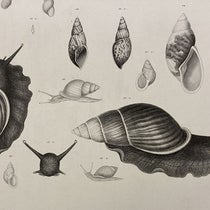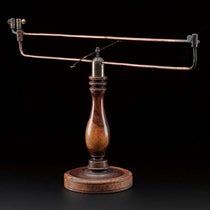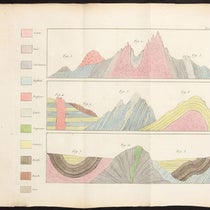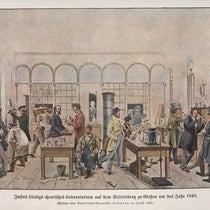Scientist of the Day - John Cockroft
John Cockroft, a British physicist, was born May 27, 1897. In 1928, the Russian physicist George Gamow had discovered the first of many quantum effects in the nucleus; he had shown that a particle could escape the nucleus, even though it doesn’t have enough energy to do so, because it can “borrow” that energy for a split second. This should be possible because of Heisenberg’s Uncertainty Principle, which says that the amount of energy a particle has in a very small interval of time cannot be known with certainty. Cockroft and his lab partner, Ernest Walton, realized that it should therefore be possible to split the atom, if you hit it with a sufficiently energetic particle. So they built a proton accelerator—the world’s first particle accelerator—in the Cavendish Lab at Cambridge and had it up and running by 1932. We see a view of it above (first image); that is Cockroft in the viewing box below. With their machine, they bombarded lithium atoms with protons and split the lithium nucleus into two alpha particles (two helium nuclei). For their achievement, Cockroft and Walton were awarded the Noble Prize in Physics in 1951.
In 1939, Cockroft became a member of the MAUD committee, the British council that first determined that an atomic bomb was possible, and then convinced the United States to get involved. He is shown above (second image) with three other British physicists that played a prominent role in the development of nuclear weapons (Cockroft is on the far right). An earlier photograph, taken the same year that the atom was split, shows Cockroft (far right) and Walton flanking the long-time director of the Cavendish Lab, Ernest Rutherford (third image).
Dr. William B. Ashworth, Jr., Consultant for the History of Science, Linda Hall Library and Associate Professor, Department of History, University of Missouri-Kansas City. Comments or corrections are welcome; please direct to ashworthw@umkc.edu.

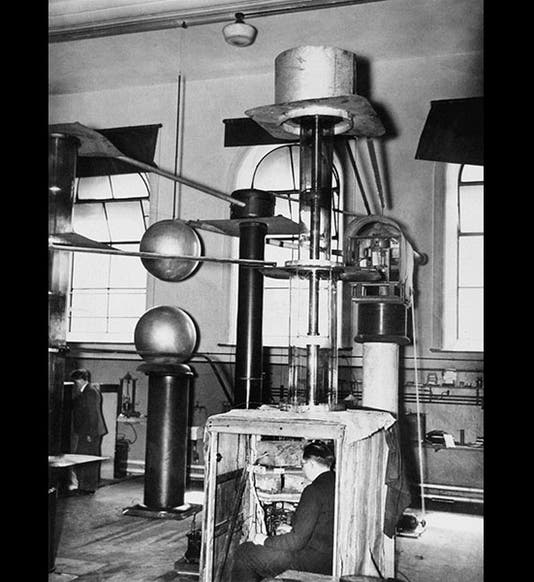
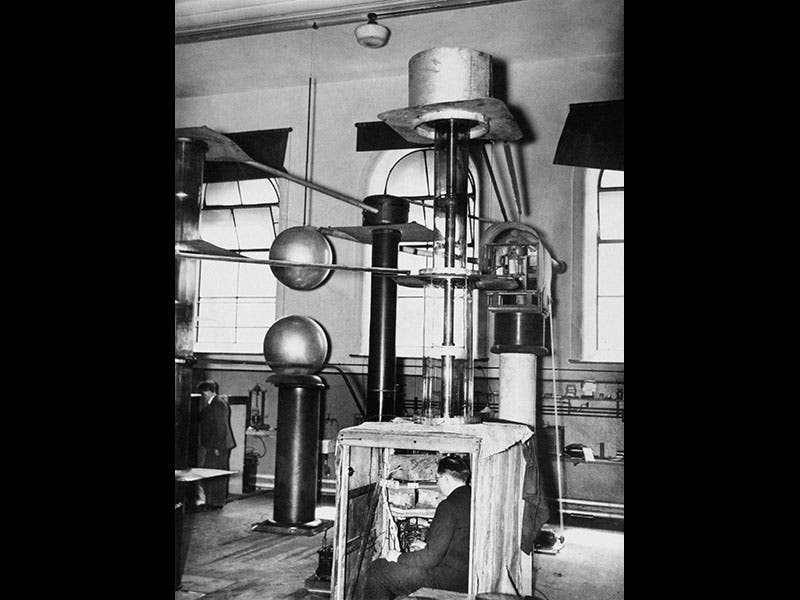
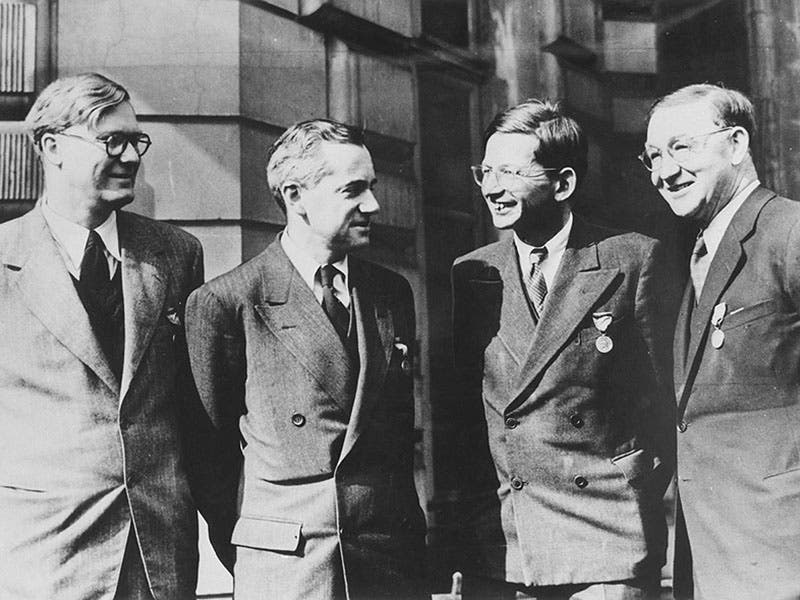
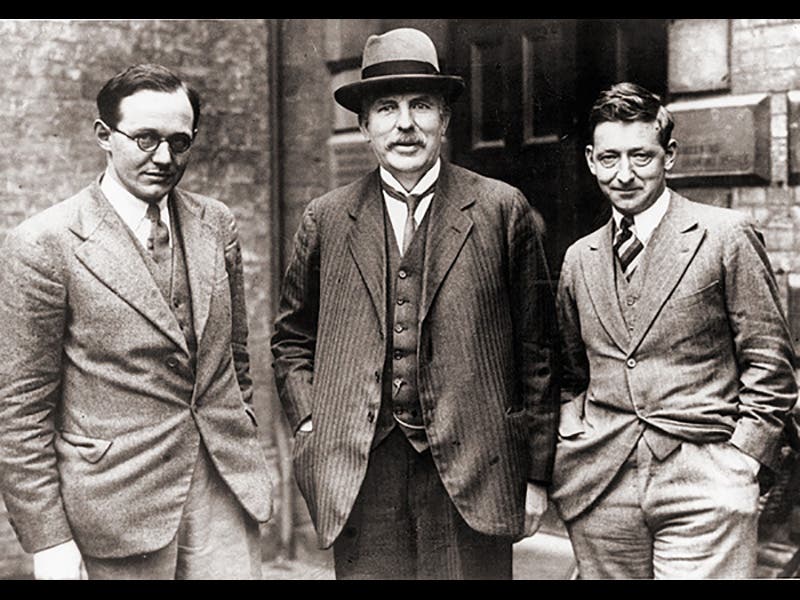
![“Aurora Borealis,” hand-colored wood engraving by Josiah Wood Whymper, [Natural Phenomena], plate 2, 1846 (Linda Hall Library)](https://assets-us-01.kc-usercontent.com:443/9dd25524-761a-000d-d79f-86a5086d4774/0245ffcb-b70c-477c-8792-0a73ebd54eb2/Whymper%2011.jpg?w=210&h=210&auto=format&fit=crop)
